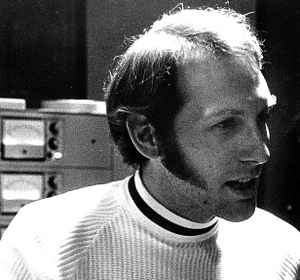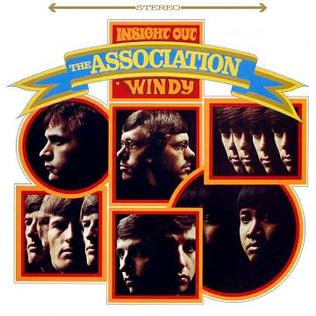- Publisher |
- Claude Call
- Media Type |
- audio
- Categories Via RSS |
- Music,
- Music History
- People |
- Country Of Origin |
- USA
- Produced In |
- Baltimore, MD
- Premiere Date |
- 2017-08-18
- Related Hashtags |
- #PM19
- Frequency |
- Weekly
- Explicit |
- No
This podcast currently has no reviews.
Submit ReviewMerry Christmas to those who celebrate!
Today we’re looking at three Christmas songs that are born from the anxieties of World War Two. Two of the songs aren’t direct references to the war itself, but it clearly informed the subject. Themes of separation and loneliness emerge, and a sense of nostalgia is present throughout.
Interestingly, one of the songs was so dark that the lyricist was asked to change the words…twice. For the other two songs, there’s a verse that usually goes unsung, though once in awhile we get to hear it. And one song was popular enough with the public that it still holds the Guinness record for most copies of a song sold—and it’s not even the original recording!
And, as promised: here are the original lyrics to “Have Yourself A Merry Little Christmas.”
Have yourself a merry little Christmas. It may be your last. Next year we may all be living in the past. Have yourself a merry little Christmas. Pop that champagne cork. Next year we may all be living in New York. No good times like the olden days. Happy golden days of yore. Faithful friends who were dear to us. Will be near to us no more. But at least we all will be together. If the Lord allows. From now on, we’ll have to muddle through somehow. So have yourself a merry little Christmas now.
Happy holidays to ye!
Click here to become a Patron of the show. Patrons get a newsletter nearly every Saturday night/Sunday morning, about 48 times a year.
Sorry, no transcript this time.
How many times now have I gone into the backstory with a song and learned that the person who wrote it says something akin to, “Yeah, I knocked that one off in about fifteen minutes.”
Oftentimes they also think that the song isn’t going to amount to very much, which I find kind of funny. But it also supports a working theory I have that it’s not always the song itself, but the way it’s presented. The Crickets (sans Buddy Holly) and a few others approached it one way, but Bobby Fuller and The Clash looked at it differently, and it paid off for them.
Click here for a transcript of this episode.
The Association was a band that just kind of floundered for awhile. First in was in their early years when they were known as simply The Men, then, in 1966 after their first album did well, the second one did…not so much.
 Bones Howe
Bones Howe
Part of the problem, it seemed, is that the band members playing their own instruments was mostly not a good idea. So for their third album, Warner Brothers (which had purchased The Association’s label and therefore their contract) brought in a new producer. That producer, Bones Howe, in turn brought in a bunch of session musicians who later became known as The Wrecking Crew.
 The Insight Out front sleeve.
The Insight Out front sleeve.
The members themselves also made some changes with regard to their overall sound and the materials that they recorded, and they managed to break away from their Sunshine Pop sound and into a more eclectic feel. Some tracks were psychedelic, some were Baroque, some were folky, and there was even a touch of the Garage Band sound. That third album, titled Insight Out, performed about as well as the first one did and yielded two of their biggest hits. And in this episode we learn a little about one of those songs.
Click here for a transcript of the episode. (The Blubrry player is supposed to provide one now; if you try it let me know how that works for you.)
Click here to become a Patron of the show. For your trouble you’ll receive a weekly newsletter about 48 times a year (hey, once in awhile I have to take a week off). It’s chock full of news, opinions, and the weekly Calendar of This Day in Music History.
One of my favorite titles for an album comes from The Animals. They did a bunch of albums up to 1969, then for a year or two there were a couple of compilation albums after they broke up. But in 1977 the Animals reunited and released a new album, titled Before We Were So Rudely Interrupted.
I don’t know what made me think of that. Anyway. (heh.)
This was one of those episodes where, the more I found, the more there was TO find. And so what I thought would be a relatively short episode clocks in at close to twenty minutes. What a bonus for ye!
“Without You” has humble beginnings and a huge, happy ending, except for the composers, Pete Ham and Tom Evans. Although it was a huge hit for Harry Nilsson and later Mariah Carey, neither composer saw much money for it. They, themselves, didn’t see much potential in the song, so they buried it in the dead center of the album, at the end of Side 1. Then in 1975, after years of mismanagement and legal squabbles, Ham committed suicide shortly after learning that all of his money had disappeared. Then, in 1983, following a dispute over royalties from the song, which had been in escrow going back to the Apple Records era, Evans also committed suicide.
Click here for a transcript of this episode.
Click here to become a Patron of the show. As a Patron, you get access to a weekly newsletter that publishes at least 48 times per year (stuff happens once in awhile, ya know?). You also get occasional goodies like:
- Giveaways
- Special videos
- Bonus Episodes
- A Sense of Pride for Having Helped Foster an Independent Creator
I think that by now the Monkees have overcome their epithet of “Prefab Four,” which I suppose was clever but not especially accurate. At least three of the Monkees were musicians who could act. I’d argue that Micky Dolenz was an actor who could play music. (More on that below.) Having said that, however, he’s got one of the best voices of the rock and roll era, so my label comes from the fact that he came from acting rather than from music, as the others did.

That they didn’t write most of their own music is really of no consequence, given that the pressure for artists to write their own material wasn’t really there yet. Similarly, the Monkees were under a tight contract, which made that difficult. Every move they made toward autonomy was met with resistance. In Michael Nesmith’s case, it meant some acrimony between him and the label.
At any rate, as I mention early in the show, “Daydream Believer” was the Monkees’ last Number One hit, but it was only their second-to-last Top Ten in the United States. (Their last was 1968’s “Valleri,” which peaked at #3.) After that, it was the bottom half of the Hot 100 for the band until a brief comeback in 1986.
 While the band members had achieved the autonomy they sought, they were also drifting apart as a group. Dolenz had lost interest in drumming, preferring instead to let session musicians take over. Producer Chip Douglas also noted that Dolenz was the weak link musically. He said that Dolenz’ work on Pisces, Aquarius, Capricorn & Jones Ltd. was cobbled together from several takes of the same song. The cancellation of the show and the poor reception of the film Head didn’t help either. Finally Peter Tork quit the group by buying out his contract at the end of 1968. By the time their television special 33⅓ Revolutions per Monkee aired in April 1969, Tork was long gone.
While the band members had achieved the autonomy they sought, they were also drifting apart as a group. Dolenz had lost interest in drumming, preferring instead to let session musicians take over. Producer Chip Douglas also noted that Dolenz was the weak link musically. He said that Dolenz’ work on Pisces, Aquarius, Capricorn & Jones Ltd. was cobbled together from several takes of the same song. The cancellation of the show and the poor reception of the film Head didn’t help either. Finally Peter Tork quit the group by buying out his contract at the end of 1968. By the time their television special 33⅓ Revolutions per Monkee aired in April 1969, Tork was long gone.
Click here for a transcript of this episode.
Click here to become a Patron of the show. As a Patron, you get access to a weekly newsletter that publishes at least 48 times per year (stuff happens once in awhile, ya know?). You also get occasional goodies like:
-
-
- Giveaways
- Special videos
- Bonus Episodes
- A Sense of Pride for Having Helped Foster an Independent Creator
-
You might remember a few episodes back when I teamed up with Mike Messner. He’s the host of the Gordon Lightfoot appreciation podcast Carefree Highway Revisited. Well, Mike is back, and this time around we’re talking about Lightfoot’s first big American hit, “If You Could Read My Mind.”
I actually went looking around for the album that I’d first heard this song on, and it turned out that I was exactly correct about its title:


This was a four-album box set that came out in 1973, so clearly the folks at Warner Brothers didn’t have a lot of hope for the rest of the decade, musically. However, this is a pretty amazing collection. I don’t think K-Tel ever put anything like this together. And it’s a shame that A) it’s never appeared in cassette or CD format; and B) it’s not likely to be, considering the nightmare it’s got to be to get the rights to them by now. (You can get it on 8-track tape if you’re so motivated, according to Discogs.)
At any rate, I’ve actually wanted to cover this song for a long while, but didn’t really have enough material for an entire episode, so I was glad to have Mike along for the ride this time around.
Click here to support the show via Patreon. As a reminder: Patrons of the show get a newsletter in their email box every Sunday, whether there’s a new episode or not. So I’ve been keeping them apprised of what’s been happening in the news and in my life. They’ve been following me through the “medical issue” that I alluded to early in this episode. And they’ll be getting something extra-special in the next week or two.
This show doesn’t have a transcript except for the one provided by the Blubrry player.
This podcast could use a review! Have anything to say about it? Share your thoughts using the button below.
Submit Review




